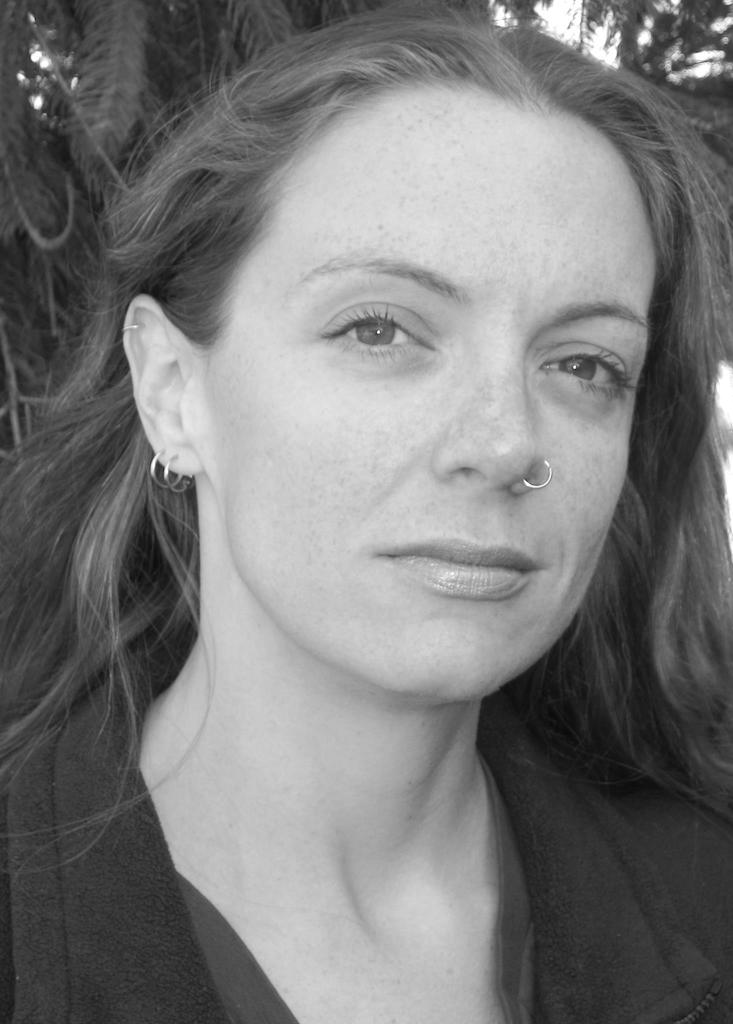Contributor Spotlight: Jessica L. Walsh
 Jessica L. Walsh’s poems “Orienteering” and “Leading to Nowhere” appear in Midwestern Gothic Issue 20, out now.
Jessica L. Walsh’s poems “Orienteering” and “Leading to Nowhere” appear in Midwestern Gothic Issue 20, out now.
What’s your connection to the Midwest, and how has the region influenced your writing?
I was born and raised in Ludington, Michigan, a small town with a thoroughly Midwestern story of gradual decline. It has been saved by beaches, woods, fishing, and stubbornness. The town annually fills with summer people, whom the locals hate and need in equal measure. I went to Kalamazoo College for undergrad and University of Iowa for graduate school (in literature, not an MFA from the famous Writers Workshop). Now I’m northwest of Chicago in the suburbs, which are neither one thing nor the other, and therefore somewhat uncomfortable to me.
For me, small-town Michigan is my exoskeleton. I’m shaped by it and protected by it; nothing else will be home, regardless of where I live. My poems are rural, suspicious, broke, and rough. They crawl back into little earthy holes that no one else would want, and they protect those holes with all available claws.
What do you think is the most compelling aspect of the Midwest?
I’m fascinated by the smiling self-denial and agreeable asceticism—which should not be confused with being “nice.” You could be dying for coffee, and someone offers you coffee. What comes out? Oh, no, I couldn’t possibly, thank you. No, really, but thank you so much. And then you’re pissed. Giving is not as hard as taking. People are reluctant to brag and eager to humble themselves. Example: I have to clarify that I didn’t attend the Iowa Writers Workshop—just the lowly PhD program down the hall. Every time.
How do your experiences or memories of specific places—such as where you grew up, or a place you’ve visited that you can’t get out of your head—play a role in your writing?
As beautiful as the Ludington area can be, it shows up in my writing as an arena of merciless naturalism. Lake Michigan is a changeable, furious beast. People who truly know the Lake have more than a little fear mixed in with their love for it. We sometimes awoke to the Coast Guard helicopter sweeping back and forth in search of someone who needed rescue. Every year brought drownings, sometimes a classmate who got drunk at jumped off the bridge at the river mouth, sometimes a tourist posing in front of the crashing wave that was about to sweep them away. I’m always mentally at that Lake when I write, unsure if I’m going to make it back from the sublime depths.
Discuss your writing process—inspirations, ideal environments, how you deal with writer’s block.
I can write almost anywhere now, because otherwise I won’t write at all. I received a sabbatical from work a few years back, for which I was given about six months to do nothing but write. I had the real deal: paid quiet time dedicated to creativity. It was terrifying to realize that all of my excuses had been removed. But eventually I figured out that the main obstacle had never been time/money/quiet/whatever— it had been fear of failing, cliché as that sounds. When I do have writer’s block, I turn to books. I read something totally different from what I do. I use prompts sometimes, or I run until the ideas start to rise above the worries. I’m a hard worker, honestly, and I always think I should be working harder to prove myself. Is that Midwestern, too?
How can you tell when a piece of writing is finished?
I don’t feel like my poems are ever finished, honestly. But sometimes they’re good enough to leave the house. When a poem is ready to meet the world, I feel a sort of internal chime, a low bell in my gut. It’s the deep frequency of connection that I hope travels from me to the page to the reader.
Who is your favorite author (fiction writer or poet), and what draws you to their work?
My favorite poet is Charlotte Mew, a poet whose work is so thrilling to me that my love of her poems withstood the repeated incompetent stabbing of my PhD dissertation. Like my hometown, Mew’s poetry is something I adore that I want to share with the world but also want to keep entirely secret. But read something like “The Quiet House,” and you’ll be done in. Shirley Jackson’s fiction—especially We Have Always Lived in the Castle—has influenced me deeply. My favorite living poet is Diane Seuss. All of these writers are brutal, unforgiving, and gorgeous.
What’s next for you?
My first book, How to Break My Neck, is due to be released any day now from ELJ Publications. So I’ll be looking for chances to read from the book around the Midwest. I’ve been submitting the manuscript for my second book, a rural Gothic collection about a woman hated by so many people that she’s driven out of her hometown. It’s inspired by a Tibetan parable, but it takes place in the amorphous “up north” region. The poems in this issue of Midwestern Gothic are from that collection.
Where can we find more information about you?
My terribly rudimentary, somewhat neglected website, www.jessicalwalsh.com, has links to some of my other work. My email is jwalshpoetry@yahoo.com . I’m on Facebook and keep up with a lot of readers and writers that way, so find me there! I can send you chapbooks or letters or whatever.






